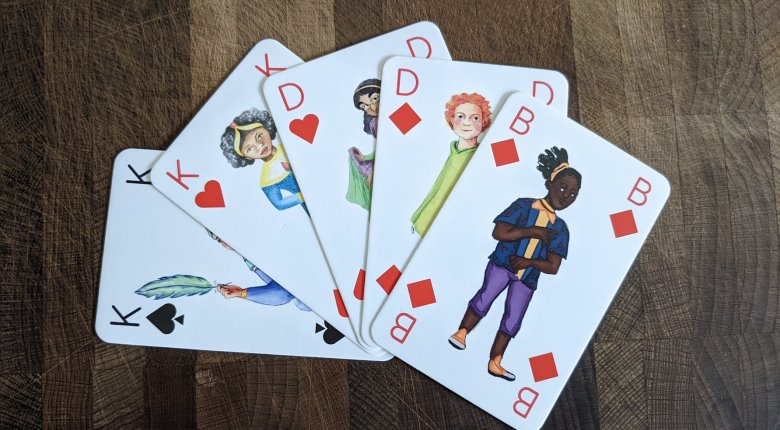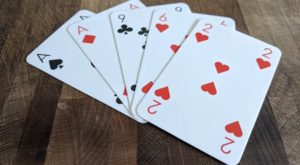- »
- News »
- The Festival Primer for Playing and Winning 5-Card Omaha
The Festival Primer for Playing and Winning 5-Card Omaha

At the Festival Series, we take pride in offering many different poker games and variants. One of the most sought-after poker variant is 5-Card Omaha – a game that grew in popularity over the past years. In Bratislava (and also at the Luxon Pay MPP Cyprus) we will offer a tournament that includes 5-Card PLO.
If you have never played this game, the rules are very simple and almost identical to 4-Card PLO. It plays the same as regular PLO except that every player receives five cards. For showdown, you must use exactly two cards from your hand and three cards from the board.
You might say that it doesn't really matter that much whether you play with four or five cards. And to some extent you are correct. The difference between 5-Card PLO and 4-Card PLO is smaller than between Hold'em and Omaha. But there are some noticeable strategic differences when approaching the game. In regular PLO you can play one of 6 hole card combinations whereas you can play one of 10 combinations in 5-Card PLO.
Let's take a look at what this means in regard to your strategy.
Preflop: Side Cards are More Important
In regular Omaha, the best hands are those where all four cards are connected. The same holds true when playing 5-card PLO: The best hands are those where all five cards are connected. For example A A K Q J . Of course, it is difficult to get such an exceptional hand. In many cases, it's enough that four cards are well connected – for example A K K J 8 . Keep in mind that any time you hold a hand with four consecutive cards and a card unrelated to the other cards - the 8 in the example above, there is always the possibility that one of your opponents has a stronger hand with five consecutive cards.

In 5-Card Omaha, side cards become much more important when you hold big pairs. Let's take a look at a simple AAXX example. Let's say you have A A 8 2 in 4-Card Omaha. This hand has roughly 60% equity against a random hand. A similar hand in 5-Card Omaha would be A A 9 6 2 . This hand only has 53% equity against a random hand and is basically a coin flip.
A general rule for hand selection in 5-card PLO is: The hands you play preflop should be slightly stronger than the hands you would choose in 4-card PLO. 5-Card hands require either stronger connections or a connection over more cards.
One of the most common mistakes players make when playing 5-Card Omaha is with AAXXX combinations. They should always be treated with caution. They win far less often than in regular Omaha.
Draws are Bigger
The draws in 5-card PLO are bigger and often a good bit harder to spot. Even in 4-card Omaha, it's hard enough to figure out what kind of wrap you're holding and this whole thing doesn't get any easier when playing 5-card PLO.
You will also hold backdoor draws like a backdoor flush draw much more often if you're holding an extra card. Note that there are no rainbow starting hands in 5-card Omaha and all hands are either single-suited or double-suited. Flushes are made more often in this variant.
In the end, wraps are only slightly more complicated in 5-card Omaha than in the 4-card variant as they can often only be made with four cards anyway. Let's take a typical wrap that uses all four hole cards in regular PLO.
Board: K 8 7
Hand: 10 9 6 5
In this example, we are dealing with a big 20-out wrap. Any Jack, Ten, Nine, Six, Five or Four will give you a straight.
So, what happens if you add an extra card to your hand that is connected? Let's say you hold J 10 9 6 5 . You will notice, that your number of outs has decreased because you now have one of the jacks in your hand. This leaves you with only one wrap with 19 outs. Other than that, your draw doesn't necessarily get worse, since some of your non-nut straight draws become nut straight draws. Although five cards can affect the structure of your wrap, the difference is less than you might first imagine. However, you should expect that the adjustment will take some time.
Double Wraps on the Turn
On the turn however you can hit draws that are not possible in 4-card PLO. Here's an example: Say you hold J 10 9 8 7 and the board shows K Q 6 5 . You have here a so-called double wrap. By using all five cards, you have two different wraps. In total, you have 23 outs with this hand. Although somewhat rare, larger wraps with all five cards are possible when playing 5-Card PLO.
Don't Trust Naked Nuts
Big hands are surprisingly easy to come by in 5-card PLO. This is true not only for you but for your opponents as well. Your opponent is more likely to have the big hand they represent. You should commit your stack less often on average compared to regular PLO.
The nuts are not always a good hand in 5-card PLO. Going all-in with the nuts on the flop can be a mistake in regular PLO (say with a straight on a monotone board without any re-draws), and this situation is even more common in 5-card PLO. It's always possible that your opponent has the same nuts and draws to better hands. Let's take a look at an example of such a hand. Say the board reads 7 6 5 and you hold A K 9 8 2 . You have the nut straight right now but are not necessarily the favorite to win the hand. If your opponent holds J 10 9 7 7 , you have them beat right now, but they have 54% equity in this hand. And it could be much worse. They could have something like 10 9 8 7 7 . Now they have 88% equity and your best chance is to tie the hand!
You must remember that this is not Hold'em - it is 5-card PLO. The side cards should always be taken into account. Always remember the following: The nuts are not always the nuts, especially in 5-card PLO. Before committing on the flop (or turn) with the nut straight, you want to be sure to have some re-draws. Naked nuts are not to be trusted.
Playing 5-Card PLO
It's probably not a good idea to play 5-Card PLO without any prior knowledge. You will learn most of the basics while playing 4-card PLO but keep in mind that 5-Card PLO plays even more to the draws.
It's a little harder to find action in 5-card PLO, since it's usually considered an "exotic" variant and not one of the standard variants like 4-card PLO. This in turn means that often the average 5-card player is much worse than the average 4-card player, as relatively few accurate analyses of 5-card PLO games exist.
If you want to try playing 5-Card PLO, make sure to check out our Festival in Bratislava where we will have a tournament that alternates between 4-Card, 5-Card and 6-Card PLO.









.png)